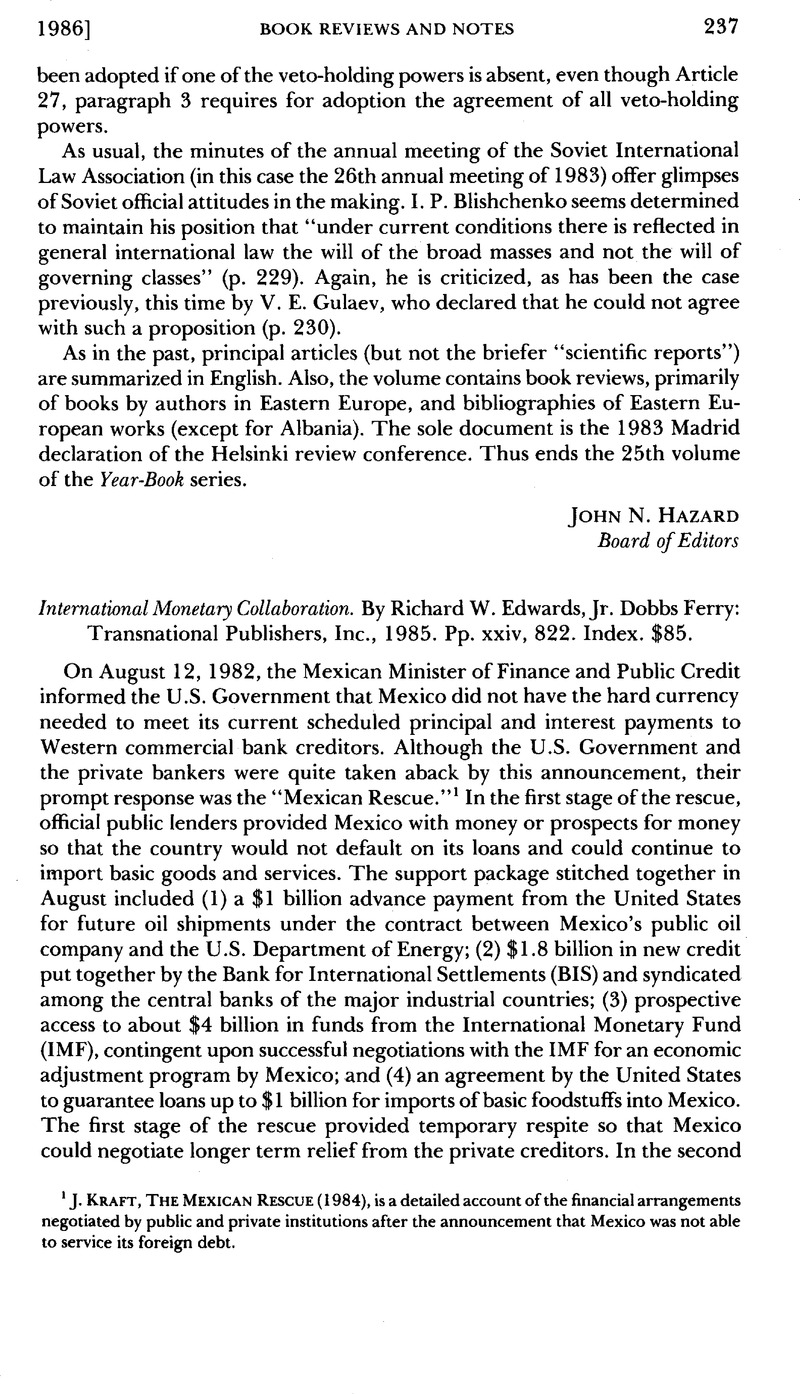No CrossRef data available.
Published online by Cambridge University Press: 27 February 2017

1 Kraft, J., The Mexican Rescue (1984)Google Scholar, is a detailed account of the financial arrangements negotiated by public and private institutions after the announcement that Mexico was not able to service its foreign debt.
2 I use the example of the international debt crisis, not because Professor Edwards considers it critical, but because it is a matter of scholarly and public concern to which a treatise like this one has much to contribute.
3 See Floating Exchange Rates and The State of World Trade Payments at xv (D. Bigman & T. Taya eds. 1984); The Future of the International Monetary System 1–3 (T. Agmon, R. Hawkins & R. Levich eds. 1983).
4 See Cline, W., International Debt: Systemic Risk and Policy Response 2–3 (1984)Google Scholar (Table 1–1).
5 A similar intellectual shift may be occurring in international relations theory. See O’Meara, Regimes and Their Implications for International Theory, 13 J. Int’l Stud. 245 (1984).
6 See Diaz-Alejandro, , Latin American Debt: I Don’t Think We Are in Kansas Anymore, 1984 Google Scholar Brookings Papers on Economic Activity 335; Eskridge, , Lesjeux Sont Faits: Structural Origins of the International Debt Problem, 25 Va. J. Int’l L. 281, 362–88 (1985)Google Scholar.
7 See, e.g., Hurlock, , Debt Restructure Agreements: Perspective of Counsel for Borrowing Countries, in A Dance Along the Precipice 119 (W. Eskridge ed. 1985)Google Scholar; Sutton, , Structuralism: The Latin American Record & the New Critique, in The IMF and Stabilization: Developing Country Experiences 19 (T. Killick ed. 1984)Google Scholar. Edwards has only this to say: “Also, economists may differ about the economic policies to be pursued [in IMF-sanctioned arrangements]. Marxist economists have often been especially critical of economic policies favored by the IMF” (p. 270). The implication of this statement is inappropriate. Serious economists representing many perspectives have been “especially critical” of the IMF.